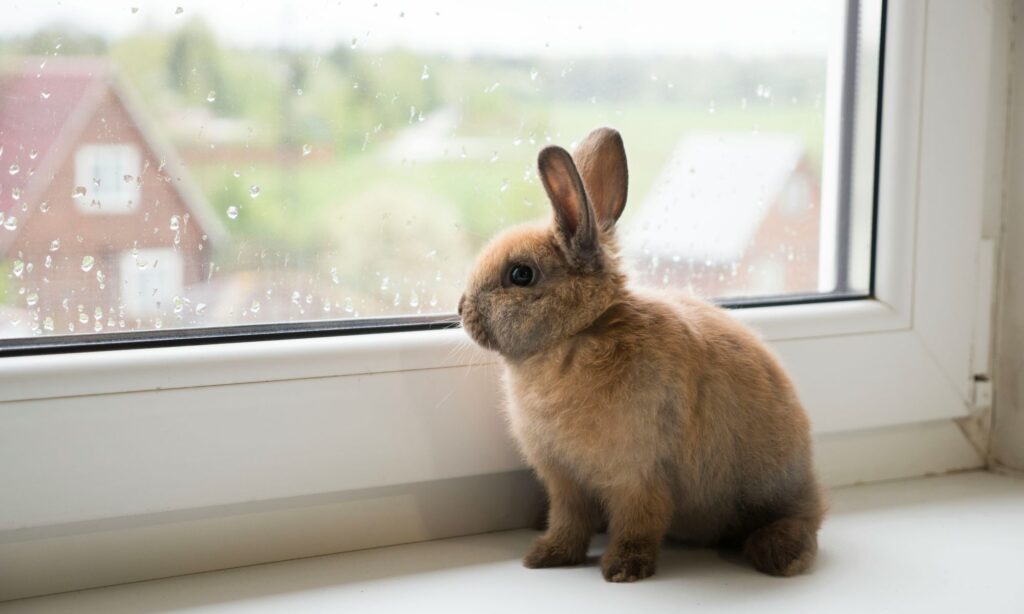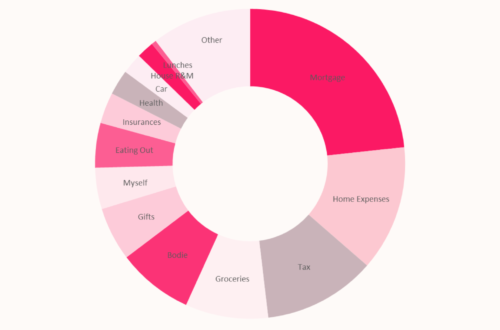My Top 10 Money Mistakes – Number 10
Sharing my biggest money mistakes when I am trying to establish myself as a money ‘expert’ might not be the wisest career move…
But hey, I figure if I can prevent even you from making any of the mistakes I made then it will have been worth it.
Writing a top 10 might also suggest I know so much now as to make me immune to future financial f*ck ups. Much as I hope that is the case, I suspect it couldn’t be further from the truth.
As with all mistakes we often don’t realise the mistake we have made until long after the fact (hindsight is 20/20). And so I am quite sure that in 10 years’ time I will look back at decisions I am making right now (like investing in Nvidia shares perhaps) and include them in my top 10.
But for now, these are the mistakes I regret making.
Of course, it is true to say I wouldn’t be where I am today if not for these ‘mistakes’ and there isn’t much I would change about my life…. except perhaps being a little further along my FI journey! (Put it another way, they don’t keep me awake at night and I am fairly sure I won’t be thinking about any of them on my death bed)
But I believe that really looking at my ‘mistakes’ helps me to see where and more importantly why I made them.
And to hopefully be able to see them before I make them next time.
So, what makes it into this list at number 10.
Money Mistake Number 10:
Squandering My Strong Early Start
I have listened to enough personal finance and FI podcasts now to know that I had such an awesome head start in life. And yet I squandered it horribly!
Whilst most of my generation and subsequent generations (yes Millennials and Gen Zers, I am talking about you) have spent their late teens and early 20s accumulating masses of student loan debt only to struggle to get a job that will pay it off, I went straight into the work force and started earning reasonable money.
My first job as a Finance Assistant in Clarks International’s Men’s department paid the princely sum of £13,000 back in 1997.
Within two years I had been promoted to Merchandiser earning £25,000. No not dressing shop windows. It’s more like a management accountant or business analyst, crunching the numbers for a particular category to inform future decisions (it’s a highly sought after and well paid job)
On a salary like that I was soon able to buy my first house a 2 bedroom terrace in Taunton (a market town in Somerset) for £60,000 – with the help of a £5,000 loan from my parents for the deposit (because despite being well paid I hadn’t managed to save any money).
I was 21 and had my first house. And on a salary of £25,000 I could easily afford the mortgage.
So whilst most people of my age would have had tens of thousands of pounds, or dollars depending on where they got their education, in debt. I had a well paying job and my first house.
By the time I was in my mid twenties (in the early 2000s) I was on almost £30,000 and my house had doubled in value (I was lucky and had timed the housing market perfectly)
But that’s where the good financial decisions end.
(well, I also contributed to company pensions, had no credit card debt and bought all of my cars in cash… maybe that’s where the good money decisions end)
I didn’t track my expenses.
I never paid more off my mortgage than the bare minimum.
I never saved – except when I was saving to buy something (like a new car)
I never created an emergency fund – even when I was made redundant in 2008.
I never invested – even when I had £75,000 sat in my bank account doing nothing.
I thought I was already well ahead of the game and had done everything I should (needed) to do.
Which is why when my marriage ended and I had to buy a house alone at 40, I still needed a 30 year mortgage.
By 40 I should have been mortgage free – I bought my first house at 21 and earned more than enough in that nearly 20 years to have paid off my mortgage. I should probably have had investment properties too.
Instead, I frittered away that advantage I had created at such a young age.

So, where did I go wrong?
Quite early on I suppose…..
With the equity that had built up in my first home at a ridiculous speed I was able to repay the money my parents had loaned me for the deposit (with interest) but what did I do after that?
I made my first money mistake – I bought a bigger house.
(And yes, it was a money mistake even though I ‘made’ money on it)
Because that’s what you do when you have equity in your home – you upsize.
But as a single twenty-something with no pets and no children I didn’t need 3 bedrooms!
I did it anyway though because I thought it was what you were supposed to do. Never questioning why. Or if it was really what I needed.
In my mid-twenties, barely a year after buying this bigger house, I moved across the country from Somerset to Sussex (so, not only did I buy a house bigger than the one I needed, I also bought it in a place I no longer wanted to live – see how it was a mistake yet?)
Unfortunately, my house couldn’t come with me. I was at least clever enough to know not to sell it and incur the estate agent’s fees, solicitor’s fees and stamp duty associated with selling a house in the UK, so I rented it out.
But renting out the home you lovingly spent 6 months DIYing NEVER ends well. Because no one loves or takes care of your home the way you do, and unsurprisingly my tenants left my house in a sorry state after a ridiculously short time. Costing me more than I could ever recuperate, even after keeping their deposit.
I know many landlords will have fared far worse than I did, and life is too short to dwell, but for me rabbit urine all over my lovely new carpet, dents in my beautiful vintage doors and frames, holes in walls and threatening messages from tenants was enough to put me off EVER trying to be a landlord again.
This isn’t a popular opinion in New Zealand where it seems the only way you Kiwis believe you can amass wealth is through property. But I will never rent out my home again.
Perhaps it is different if you buy and renovate a house that you never live in, a house you bought for the sole purpose of providing a home for someone else.
Perhaps you aren’t as precious about paintwork, fitting and fixtures… perhaps when you haven’t spent 6 months of your life, time and earnings painstakingly creating a beautiful home only for someone else to treat it disrespectfully, you accept these things as normal ‘wear and tear’…
Either way, it was a time in my life that I am glad not to have to think about.
Plus moving to Sussex ended well as it’s where I met my lovely ex-husband. And its only thanks to him that I now call New Zealand my home.
Of course, my bad financial decisions didn’t end with buying the bigger house and then renting it out!
When I did eventually decide to settle in Sussex, so sold my home in Somerset, I sat on the equity just in an ordinary bank account – squandering the opportunity to earn interest or grow my wealth.
And having 75k sat in your bank account in your late twenties is far too tempting. I inevitably ended up frittering some of it away on a newer car (luckily not brand), I lavished gifts and holidays on those I love (something I always do when feeling flush) and then eventually got back on the property ladder in 2008 – just in time for the whole financial world to turn to custard!
We (it was my future husband and I by this point) were lucky that the property we bought and renovated had been so cheap that we sold it for what we bought it for, I realise it could have been much worse. But still, it was an expensive lesson that the housing market does not always go up – contrary to popular belief. And that timing the market is pure luck, not skill.
I can’t regret this ‘mistake’ too much either though because had we not sold when we did, we wouldn’t have been able to enjoy our 3 week visit to New Zealand (paid for again by the equity – not by saving anything from our well paid jobs), nor would we have been tempted to move here. It was much easier to say “why not?” when we didn’t have a house to sell – we felt like we had nothing to lose.
I was lucky that in the 10 years I had now been in the property market I had enough equity (mostly from my first house I will add) to also be able to afford to pay for most of our wedding and fund our big move to New Zealand.
There would have been far more though if it had EVER occurred to me to pay more than I needed to on my mortgage. When I took out a 25 year mortgage, I thought it was for 25 years. It never occurred to me that you could pay more to become mortgage free at an earlier age. Maybe because at 21 I thought I would be mortgage free at 45… but of course every time I took out a new mortgage it was for 25 years.
When I bought my larger house at the age of 25, I took out a 25 year mortgage – meaning I was now going to be mortgage free at 50 instead of 46. When we bought our city apartment at 30 we took out a 25 year mortgage – so now I was going to be 55 when we were mortgage free. And when we bought our first home in New Zealand at 36 we took it out for, yep you guessed it, 25 years, so now I was going to be 61 when I paid it off. I never questioned this. It was the norm. I never asked myself if there was another way.
I would be so much further along in my FI journey than I am now if I had ever thought to invest the difference between my salary and my living costs rather than fritter it away on god only knows what (Whittards mugs, candles and gifts) Investing might not have been as easy then as it is now, but what annoys me most is that as a woman of average intelligence (why is it I hear Violet, the Dowager Countess’s voice saying that as I type it??) who likes to read, I never thought to educate myself on personal finance. I never thought to pick up a book and find out how I might be able to make money work for me.
I would be in a far better position if I had contributed to a personal pension as well as the company pensions I invested in. I never thought to ask my Dad (who is so good with money he was able to afford to retire my Mum at the age of 53 when he retired at 65) or look into options that might allow me to ‘retire’ early like my Mum.
I would be so much closer to financial independence if I hadn’t been tempted by lifestyle creep and the lure of a bigger house, a nicer car, the latest clothes and gadgets. I got caught in the trap of keeping up with the Joneses… It’s an easy one to fall into, and at the time you don’t even realise you’re doing it at the time. It’s not like I thought to myself “Louise has a new car, I need one too now.” What they had inspired me, made me realise what was available, and left me wanting more than what I had previously been happy with.
Avoiding this lifestyle creep is even more difficult now. Because back then the Joneses were just my friends and next-door neighbours, now the Joneses are the celebrities we see on television, the influencers bombarding us with dream lives on Instagram, the friends from school we haven’t even seen since we were 15 yet we’re Facebook friends so get to enjoy their holiday to Thailand snaps… No wonder we are left feeling discontent however amazing our current lives our.
I have never sat down and worked out the money I wasted on estate agent’s fees, solicitors, renovating, decorating and drinking (alcohol is required when renovating) …. It would be far too depressing an exercise. But I do know that I have moved 12 times since I left home.
As I said at the beginning of this rather lengthy first in my countdown (if you’re still here, you’re doing well) I can’t regret these ‘mistakes’ because they lead me to the life I live now, which is pretty bloody good – I live in a beautiful part of New Zealand, in a home I love, doing a job I find rewarding with an team I genuinely enjoy working with. I eat well, spend time with friends and even started going on holiday again last year. Life is good.
But if I could have my time again, if I could rewind to being 21 again….

What would I do differently?
I would make extra payments on my mortgage when I could (paying it off as quickly as possible).
I would invest regularly whatever I could afford – as long as my mortgage interest was below 7% (which I think it was)
I would question the ‘norm’, and always ask if there is another (better) way.
I would avoid lifestyle creep. I would be content with what I had.
(and I wouldn’t let a rabbit live in my house)
I would continue to track my expenses so that I cultivate spending my money more mindfully – less on clothes and alcohol, more on holidays and experiences and paying my future self.
Hopefully in doing so I would learn that it’s not things that create a sense of happiness and wellbeing, but connection and memories. Things you only get those from spending quality time with the people you love. And those things are priceless!
And if I did all those things perhaps right now I would be writing about my new life as a retiree at 45, rather than a divorcee trying to make ends meet….. but that may not have made for quite such an entertaining read.
I plan to write one of these a month, so if you want to know what number 9 is in my top 10 money mistakes (or financial f*ck ups) pop back in March.
Amy
XO$




